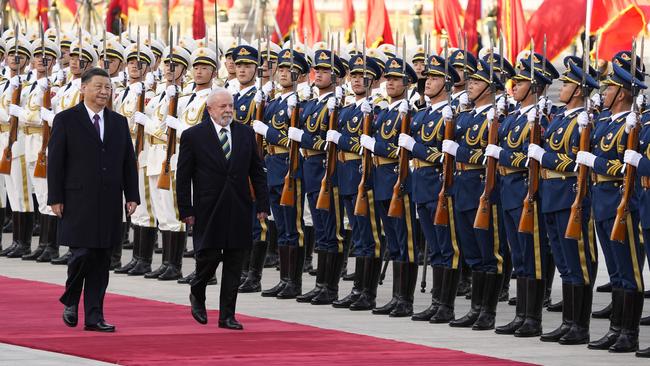China a threat to world’s cyber security, warns UK chief
The West faces an ‘epoch-defining’ challenge from China that must be addressed before it becomes the world’s leading technological power, one of Britain’s top security chiefs warns.

The West faces an “epoch-defining” challenge from China that must be addressed before it becomes the world’s leading technological power, one of Britain’s top security chiefs warns.
Lindy Cameron, head of the National Cyber Security Centre, says Britain and its allies cannot afford complacency over the “dramatic rise of China as a technology superpower”.
Beijing is aiming for technical supremacy over Western countries rather than parity and, if it is allowed to succeed, the strength will be used to “achieve a dominant role in global affairs”, Ms Cameron was due to say in a speech overnight on Tuesday.
Ms Cameron, who is responsible for Britain’s cyber protection as chief executive of the organisation, an arm of the country’s intelligence and security network, was to warn in her speech: “Bluntly we cannot afford not to keep pace otherwise we risk China becoming the predominant power in cyberspace.”
The speech marks Ms Cameron’s strongest intervention in her 2½-year leadership of the NCSC and comes amid alarm at China’s increased aggression in the South China Sea and the Taiwan Strait.
There are fears that if China becomes technologically superior it could use supply chain controls to hobble its competitors and strangle Western markets. Spy chiefs also worry that frontier technologies such as quantum computing, the semiconductor industry and artificial intelligence could be weaponised.
Ms Cameron speech at the CyberUK annual conference in Belfast, which will attract cyber security leaders from around the world, warns government, business and the public to take heed of the growing threat.
She says “we cannot secure future technology without addressing the epoch-defining challenge that we are facing: the dramatic rise of China as a technology superpower”.
“China has identified several existing and emerging technologies as being vital to its future national security,” she says.
“And it has an aspiration to become a world leader in setting technological standards.
“So we need to be clear: China is not only pushing for parity with Western countries, it is aiming for technical supremacy. It will use its tech strength as a lever to achieve a dominant role in global affairs.
“What does this mean for cyber- security? Bluntly we cannot afford not to keep pace otherwise we risk China becoming the predominant power in cyberspace.
“Some may dismiss this as far-fetched or scaremongering, but it is a risk I would urge you to take seriously.
“This is simply not something about which any of us can be complacent.”
Ms Cameron’s language echoes that of British Prime Minister Rishi Sunak, who revamped the government’s foreign policy on China last month and warned that it “represents a challenge to the world order”.
A series of other spy chiefs have also spoken out about how China represents the greatest long-term threat from a hostile state, which places the West’s security values and democratic institutions at stake.
MI5 chief Ken McCallum warned last year that Chinese economic espionage was targeting Britain’s expertise, technology and research and trying to erode its commercial advantages.
The CyberUK conference is hosting discussions on the theme of “securing an open and secure digital future”.
Ms Cameron, who took over the NCSC in October 2020, highlights the “huge advantage” the West possesses through its liberal economy and democratic values, but also the need for everyone working in cyber security to take responsibility in addressing the challenge. She will say the UK has taken a “proactive” approach to shape the frameworks that govern cyberspace.
Large language models such as ChatGPT, the AI chatbot, provide benefits such as making economies more efficient and providing a valuable service to customers.
However, she highlights concerns such as the potential for an increase in data privacy breaches, more convincing phishing attacks and the spread of disinformation. Cameron will also warn there is a risk that criminals might use such models to help with cyber attacks.
The Times



To join the conversation, please log in. Don't have an account? Register
Join the conversation, you are commenting as Logout